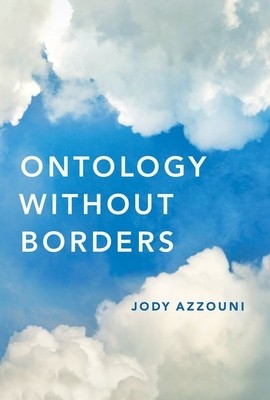
- We will send in 10–14 business days.
- Author: Jody Azzouni
- Publisher: Oxford University Press, USA
- ISBN-10: 0190078731
- ISBN-13: 9780190078737
- Format: 15.5 x 23.1 x 2 cm, minkšti viršeliai
- Language: English
- SAVE -10% with code: EXTRA
Reviews
Description
Our experience of objects (and consequently our theorizing about them) is very rich. We perceive objects as possessing individuation conditions. They appear to have boundaries in space and time, for example, and they appear to move independently of a background of other objects or a landscape. In Ontology Without Boundaries Jody Azzouni undertakes an analysis of our concept of object, and shows what about that notion is truly due to the world and what about it is a projection onto the world of our senses and thinking. Location and individuation conditions are our product: there is no echo of them in the world. Features, the ways that objects seem to be, aren't projections. Azzouni shows how the resulting austere metaphysics tames a host of ancient philosophical problems about constitution ("Ship of Theseus," "Sorities"), as well as contemporary puzzles about reductionism. In addition, it's shown that the same sorts of individuation conditions for properties, which philosophers
use to distinguish between various kinds of odd abstracta-universals, tropes, and so on, are also projections.
EXTRA 10 % discount with code: EXTRA
The promotion ends in 23d.18:30:19
The discount code is valid when purchasing from 10 €. Discounts do not stack.
- Author: Jody Azzouni
- Publisher: Oxford University Press, USA
- ISBN-10: 0190078731
- ISBN-13: 9780190078737
- Format: 15.5 x 23.1 x 2 cm, minkšti viršeliai
- Language: English English
Our experience of objects (and consequently our theorizing about them) is very rich. We perceive objects as possessing individuation conditions. They appear to have boundaries in space and time, for example, and they appear to move independently of a background of other objects or a landscape. In Ontology Without Boundaries Jody Azzouni undertakes an analysis of our concept of object, and shows what about that notion is truly due to the world and what about it is a projection onto the world of our senses and thinking. Location and individuation conditions are our product: there is no echo of them in the world. Features, the ways that objects seem to be, aren't projections. Azzouni shows how the resulting austere metaphysics tames a host of ancient philosophical problems about constitution ("Ship of Theseus," "Sorities"), as well as contemporary puzzles about reductionism. In addition, it's shown that the same sorts of individuation conditions for properties, which philosophers
use to distinguish between various kinds of odd abstracta-universals, tropes, and so on, are also projections.


Reviews